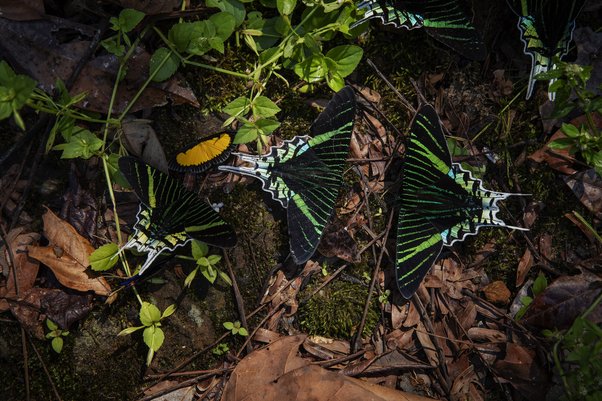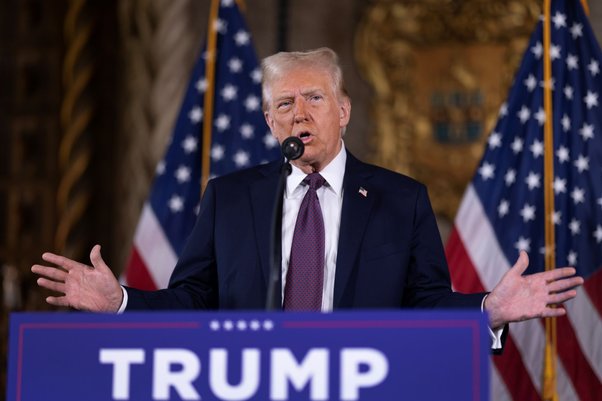Across the world, women are leading the fight against the climate crisis. They are keeping forests standing, stopping fossil fuel extraction and changing laws.
On International Women’s Day, Global Witness stands in solidarity with their actions and shares their stories so we can all learn from their success.
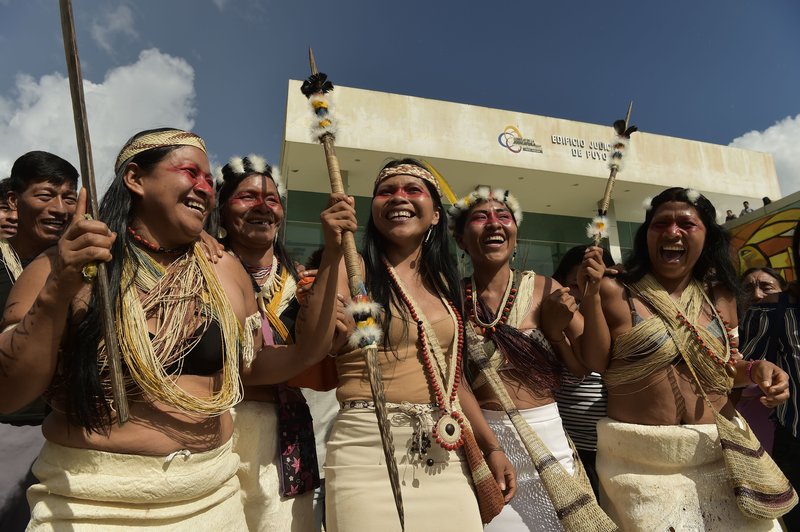
Nemonte Nemquimo (C), Waorani leader from Ecuador, celebrates with other Waorani indigenous people after a court ruled in their favour on the community's legal challenge to the government's land selloff. RODRIGO BUENDIA/AFP via Getty Images
This photo represents the joyful moment the Waorani indigenous community from southern Ecuador won a landmark ruling in 2019 to prevent the government selling off their land for oil and gas exploration. Their success means more than 500,000 acres of Amazonian rainforest will be protected - a major win for the climate as tropical rainforests are essential for keeping the earth cool.
The victory also represents an important precedent for indigenous people’s rights. Nemonte Nenquimo (above, third from right), a leader from the community, led the action to take the Ecuadorian government to court, and has spoken publicly of the important role of women in the community and campaign: ‘When it comes to taking decisions, the women pull no punches, and everyone listens up,’ she said in an interview with the BBC last year.
This is just one example of the unique contribution women have made to the climate movement in recent years. From internationally high-profile climate strikers inspiring younger generations, such as Vanessa Nakate or Greta Thunberg, to communities such as the Ogiek of Kenya winning a landmark ruling to protect the Mau Forest, there are thousands of examples of women who are protecting water, forests or biodiversity, leading resistance movements, standing up to destructive fossil fuel projects, spearheading clean energy projects or changing climate policy. It is clear we cannot win against the climate crisis - or, crucially, achieve climate justice - without women’s leadership.
We see women demonstrating every day that they have unique and essential ideas and skills to offer at this turning point in history where humanity is literally facing a crisis of survival
In a move that was largely welcomed by many climate organisations, a new 5-year Gender Action Plan was agreed at COP 25 in 2019 - signalling the fact that the importance of women’s leadership and participation in climate policy has been recognised. Yet, women are disproportionately impacted by the climate crisis and their basic rights are denied in many parts of the world. This is worsened when other factors are involved - such as ethnicity, sexual orientation, gender, poverty, age and disability.
Leading the fight against polluters
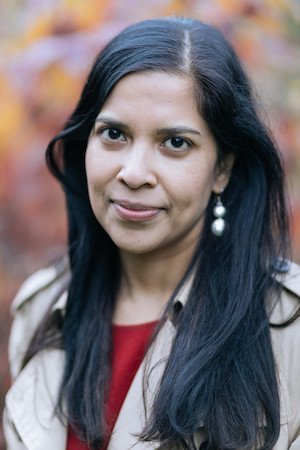
Tessa Khan, climate change lawyer and Direct of Uplift
Oil, gas and coal are some of the world’s biggest polluters. Just 20 fossil fuel companies are responsible for more than a third of all greenhouse gas emissions in the modern era. This is an industry campaigners agree relies on a system of oppression. Communities of colour and indigenous people are particularly affected by air pollution, for example, because communities of colour and poorer communities tend to live near polluting power plants.
Tessa Khan, a climate change lawyer and director of Uplift, a new organisation focused on a rapid phase-out of oil and gas production in the UK, says, ‘There is plenty of evidence that confirms that women all over the world are disproportionately affected by the impacts of the climate crisis, which is of course overwhelmingly linked to greenhouse gas emissions caused by the use of fossil fuels.’
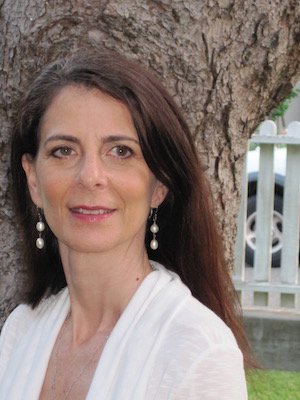
Osprey Orielle Lake, Founder and Executive Director of WECAN International
Tessa says we need to ‘rapidly transform our economic and political systems... to address the fundamental imbalances in and abuses of power that have enabled the climate crisis.’
Osprey also calls for an overhaul of the system that has caused the climate crisis.
‘Our view is that we really need to transition from an extractivist, colonial paradigm of exploit and extract to a system of respect and restore,’ says Osprey, ‘And this means rapidly halting extraction and burning of coal, oil and gas, while simultaneously building a new economy, predicated on community-led solutions, women’s rights, indigenous rights, the rights of nature, and the rights of future generations.’
Protecting homes and the environment
Women land and environmental defenders are instrumental in tackling the climate crisis and achieving environmental justice - in 2019 the United Nations formally recognised the role of defenders in environmental protection. However, their work often comes at a cost. Women land and environmental defenders are regularly killed and deliberately targeted for retribution. Often the backbone of their community, women tend to take on more of the responsibility of looking after children and elderly relatives, on top of trying to earn a living and work as activists. Women who act and speak out may also face gender-specific threats, including sexual violence.
However, many women defenders Global Witness has worked alongside have talked about their unique connection to the land and environment, as protectors of their communities, motivating them to stand up despite these threats.
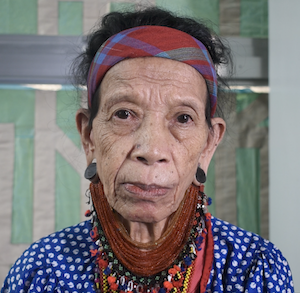
Bai Bibyaon Ligkayan Bigkay, leader in the indigenous Talaingod-Monobo community, Philippines
Bai Bibyaon Ligkayan Bigkay, is the only woman chieftain in the history of the indigenous Talaingod-Monobo people in the Philippines. She has dedicated her life to protecting the rainforests of the Pantaron Mountain Range - one of the largest biodiverse areas in the country - from commercial logging and mining industries. Last year, she talked to Global Witness about the challenges she faces as a woman leader. ‘They say, “why should you be a leader, when you’re a woman?”. But that kind of thinking is unacceptable. A woman must learn to stand and fight for what is right’. Bai continues her work, despite the fact her friend and fellow Manobo leader Datu Kaylo Bontolan was murdered last year.
Rukka Sombolinggi is Secretary General of AMAN, the Indigenous Peoples’ Alliance of the Archipelago, representing 3,000 indigenous communities in Indonesia. One of Rukka’s major concerns is with the land grabbing and human rights abuses experienced by indigenous communities due to the palm oil industry. Rukka talked to Global Witness about the impact of this industry on indigenous women, in west Kalimantan, whose land had been taken away. Many of the men in the community felt forced to work on the palm oil plantations to earn a living, leaving the women in ‘uncertain situations’.
‘When they take our land, when they take our forest, these are the places where women play very big roles. So when they take away the land and the forest, they have taken away everything from the hand of the women.’
Rukka says this spurred indigenous women to resist and file complaints in the court, with the aim of getting their land back, which unfortunately was not successful. Rukka calls for international action and change.
‘As long as the situation remains the same, and then the imbalance of power remains in place, and then the exploitations of our land, of our life as indigenous people will continue. What I am urging the international community now is do things in a responsible way. Because why? We are facing climate change.’
We need women’s leadership to achieve a sustainable future
The main message on International Women’s Day is that women from all different ethnicities and backgrounds need to be invested in and recognised as a force for change - at the local, national and international level. As Osprey says, ‘We cannot get to sustainability without women’s leadership - this is shown in study after study.’
‘In my experience, and our collective movement’s experience, women are seeing the connection and are willing and able to unite across borders, to challenge systems of oppression, to strive to build a healthy and liveable future.’
Global Witness stands in solidarity with women who are leading actions to stop the climate crisis in every region of the world.
